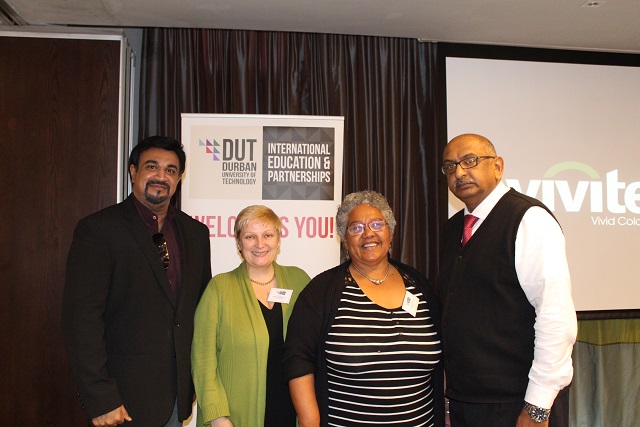Discussing ways in which The Durban University of Technology can internationalise the curriculum was the main topic of conversation at the workshop hosted by the International Education and Partnerships office which took place at the Coastlands on the Ridge hotel this week.
The purpose of the workshop was to engage in what internationalisation of the curriculum means and the benefits of how it can be embedded into the academic programme at DUT.
Dr Lavern Samuels, director of the International Education and Partnerships emphasised the importance of internationalising the curriculum and how it can keep students and lecturers in touch with world trends. He also explained how internationalisation of the curriculum was a powerful tool to drive innovation and transformation.
“There are uprisings around the world that need our attention if not our understanding. The world is interconnected, issues like HIV, water shortages, food security and global warming are global issues that need global solutions and we need to reflect this in our curriculum,” stressed Dr Samuels.
Ola Quinlan, director of the Rhodes University International Office, gave a presentation on the strategic approach to infusing internationalisation in the formal and informal curriculum at Rhodes University.
Quinlal added that internationalisation was the process of integrating an international intercultural or global dimension into purpose, function and delivery of post-secondary education, in order to enhance the quality of education and research for all students and staff. He also said that this process of delivery encouraged students and staff’s curiosity, creativity, flexibility and critical thinking.
“Internationalising the curriculum seeks to create a culture that makes students and staff feel the University is a democratic meeting place where the encounter of diversity, whether it is gender, culture or nationality, creates opportunities to develop new competencies, knowledge and understanding,” she said.
The two-day workshop also included a panel discussion, question and answer session and a report back on the way forward.
Pictured: Dr Lavern Samuels with guest speakers at the workshop.
Sthabile Gwala

